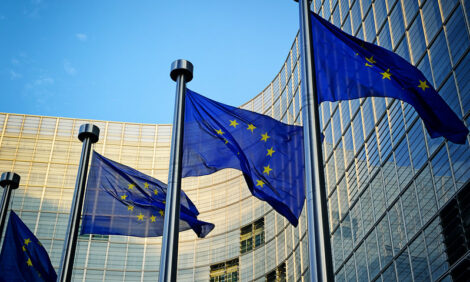



Success in Korean Market Celebrated at Event
SOUTH KOREA - Celebrating continued growth and success in South Korea while also recognizing the many partners that have helped the US become the top beef and pork exporter to that country, USMEF hosted the “World Class US Meat Appreciation Event” at the Four Seasons Hotel in Seoul.
More than 250 importers, distributors, retailers, packers and foodservice operators attended the celebration, which was funded by the USDA Market Access Programme (MAP), the Beef Checkoff Programme and the Pork Checkoff.
According to USDA data released less than a week before the event, US beef accounted for 49.4 per cent of Korea’s imported beef market in January and February, outperforming Australia (41.1 per cent). The initial overtaking of Australian beef actually happened in October 2016 – capping an impressive comeback from the BSE case of 2003, when US beef lost access to the Korean market.
The US is the second-largest supplier of pork to Korea after the European Union. But when classified as individual countries, the US has been Korea’s top pork supplier for more than a decade. US market share was 30 per cent in 2016, and in the first two months of 2017, US pork exports to Korea were up 18 per cent.
“The purpose of bringing everyone together in Seoul was not only to celebrate the market share milestone, but also to share a vision with Korean meat trade stakeholders of deeper cooperation in the future,” said Joel Haggard, USMEF senior vice president for the Asia Pacific region.
The event started with a commemoration video highlighting USMEF’s marketing activities in Korea, along with a brief history of USMEF’s efforts and strategy to rebuild the image and sales of U beef after regaining market access in June 2008.
USMEF President and CEO Philip Seng shared his appreciation for the efforts of US beef and pork packer representatives in Korea. Their strong contributions helped maintain trade relationships in Korea despite stiff challenges and secured the largest share of Korea’s imported meat market.
“The growth of US red meat in Korea has been made possible because of the long-term relationships that were built over decades, and because of the passion and commitment of our Korean partners,” said Mr Seng.
Marc Knapper, chargé d’affaires in the US Embassy in South Korea, made a congratulatory speech, noting the value of US-Korea trade and the contribution of US red meat exports. USMEF-Korea Director Jihae Yang recited a narrative of the past, present and future of US red meat in Korea, sharing how consumers and the marketplace have changed since 2003.
US beef, which captured nearly 70 per cent of the imported beef market in 2001, was banned in December 2003 due to the first US BSE case. After a struggle to regain access, consumer sentiment toward US beef improved and trade volumes slowly but steadily increased.
USMEF marketing programmes addressed both consumer apprehension about US beef safety and the challenge of rebuilding distribution in foodservice and retail channels. Ms Yang noted that the Korea-US Free Trade Agreement has helped to lower barriers, but US beef’s market share achievements would not have been possible without a significant industry commitment to an aggressive marketing strategy.
“US beef now has momentum across all sectors, with expansion in the range of items moving through the channels, as well as an increasing number of end users in the retail and foodservice sectors,” said Ms Yang.
“USMEF’s educational efforts have been extremely effective in changing consumer perceptions, which was needed in order to achieve sales growth.” Ms Yang noted Costco Korea’s recent decision to convert its imported chilled beef selection from Australian beef to 100 per cent US product. The move follows a multi-year effort by USMEF to assure the chain’s executives and store managers that sales of US beef would match or exceed Australian beef sales.
Ms Yang also pointed out USMEF’s role in leading new food and meat trends in Korea, including the introduction of concepts such as dry aging, American steak, American barbecue and gourmet burgers.
Appropriately, guests at the “World Class US Meat Appreciation Event” were served US beef striploin, US pork belly and US processed pork products at a formal dinner.
USMEF staffers say the celebration of US red meat’s success is not a sign that they will be easing up on efforts in Korea.
“During my time in Korea for this event, I observed a more positive attitude by the trade and end users toward US beef than in any other point in the last 13 years,” said Mr Haggard. “US beef has reached a ‘tipping point’ in Korea whereby there is now sufficient critical mass and momentum by the industry, and US beef has become the top-of-mind imported beef of choice in the marketplace.”
TheCattleSite News Desk


